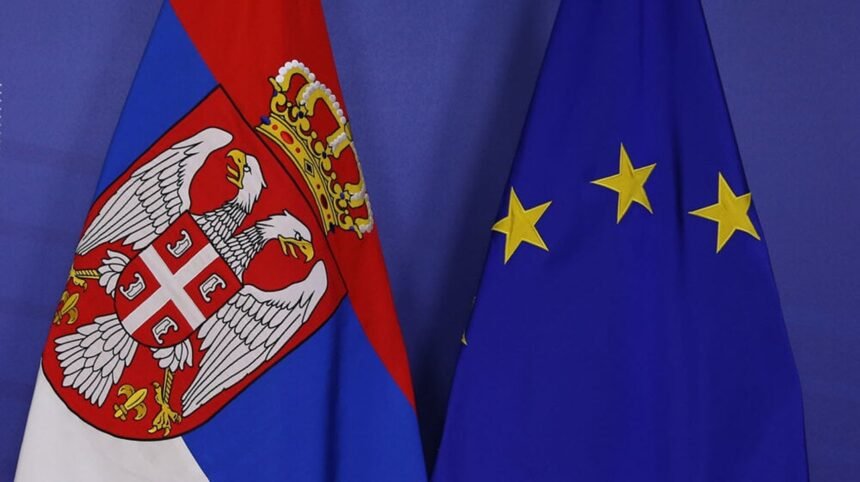A new survey by the European Movement in Serbia (EPUS) reveals a generation of young Serbs eager for societal change, yet constrained by a political system that stifles engagement and a mentality that hampers meaningful European integration.
The research, Youth at the Turning Point – Shift to the Right and the European Dilemma, shows that while young people in cities like Belgrade, Novi Sad, Kragujevac, Niš, and Novi Pazar are dissatisfied with the political environment and distrustful of institutions and traditional media, their desire for change is met with systemic obstacles. In smaller towns, reliance on local media and social networks reflects both a lack of reliable information and a vacuum exploited by misinformation and extreme narratives.
“Even if the government is removed, that is only the beginning… Many things that are normal in the EU would not succeed in our country,” respondents said, highlighting how the political culture and entrenched regime practices discourage progress.
While these young citizens see protests and student blockades as a signal for unity, accountability, and a fight against corruption, the survey suggests they remain largely excluded from formal political processes. EPUS Secretary Dragana Đurica emphasizes, “Young people are not ideologically extreme. It is not radicalism, but a cry for order and responsibility, and the regime is trying to manipulate their energy for its own agenda.”
The research underscores that Serbia’s political and institutional inertia, combined with a mentality wary of real engagement, prevents youth from translating their aspirations into concrete action. Economic insecurity and a lack of trust in the European path—exacerbated by the EU’s slow reaction to domestic protests—leave young people skeptical of both national and international actors.
Časlav Jovičić, one of the study’s authors, points out: “Young people see the future as a process that must be action-oriented. But there is no concrete plan that inspires belief in real change. Without a political culture that fosters participation and responsibility, their desire for transformation will remain unfulfilled.”
Ultimately, the survey paints a sobering picture: a youth with energy, ideas, and a vision for Europe, yet held back by a political regime resistant to reform and a mentality shaped by distrust, inefficiency, and missed opportunities. Until both the system and societal attitudes evolve, Serbia’s path to genuine European integration remains stalled.







